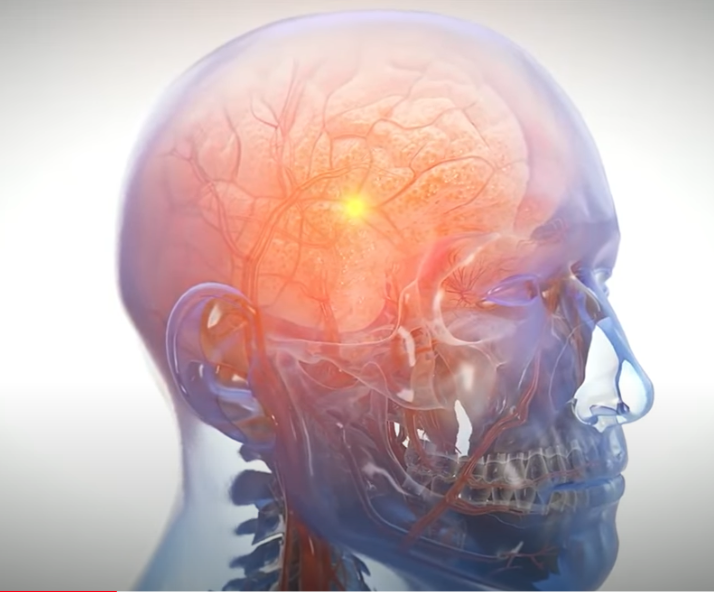California is a beautiful place to drive, but it can also be dangerous. In 2018, 3,463 people died in California motor vehicle accidents and many more suffered serious injuries. Car accidents are a leading cause of brain injuries, such as concussions. Concussions vary a great deal in severity, recovery time, cost of treatment, method of treatment, and the effects they have on the particular survivor. If you are considering a lawsuit against the party at fault for the accident, all of these factors have a bearing on the settlement you may receive. If you still have more specific questions about your case then contact the brain injury lawyers at the Gomez Firm today.
What Is a Concussion?
A concussion is a type of traumatic brain injury. It is caused by a “bump, blow, or jolt to the head or by a hit to the body that causes the head and brain to move rapidly back and forth.” In a car accident, there are a number of ways that a victim may become injured from an actual strike to their head – from the dashboard, steering wheel, car window, or even loose articles in the car. However, an actual strike to the head is not required for a concussion to occur. In fact, a victim may suffer serious long-term effects from what is known as a “coup contrecoup” injury where there is rapid acceleration and deceleration of the head, with no external impact. When the brain moves rapidly back and forth inside the skull, the soft brain strikes the inside of the bony, hard skull. This can cause the axons – which deliver messages throughout the brain that keep our bodies working – to become stretched, twisted, or torn, and lead to serious issues associated with TBI.
In the United States, nearly three million people every year visit the emergency room for traumatic brain injuries, with 70 percent to 90 percent sustaining so-called mild traumatic brain injuries (mTBI), more commonly known as concussions.
Signs and Symptoms of Concussion
It may be easy to overlook a concussion. There may be no signs of injury on the outside of your head. Some symptoms may appear immediately after a car accident. However, others may not become apparent until hours, days, or even weeks afterward. Some concussions cause you to lose consciousness, but many do not. Therefore, you may have a concussion and not realize it, so it is important to be aware of the potential brain injury symptoms. Signs and symptoms may include:
- Headaches or a sensation of pressure in the head
- Temporary loss of consciousness
- Ringing in the ears
- Blurred vision, dizziness or “seeing stars”
- Confusion or loss of memory
- Feeling nauseous
- Vomiting
- Bothered by light or noise
- Feeling sluggish, dazed, lazy, hazy or foggy
- Slurred speech
- Delayed response to questions
- Fatigue
- Changes in Sleep Patterns
- Mood Changes
- Seizures
- Not feeling “right” or feeling “down”
It is important to note that just like people, every brain injury is different. You may experience some, all or none of the symptoms above. With different symptoms comes the need for different treatment. An experienced brain injury attorney, like Gomez Trial Attorneys, will work with survivors to understand their specific injury. Likewise, we help survivors understand how to take their medical care into their own hands – making sure that their doctors fully understand what the survivor is going through in order to treat. We do everything we can to map out for survivors and their families what the next months or years of treatment will look like. Often, treatment is inhibited by fear, exhaustion, or hopelessness on the part of a survivor. But, a good attorney’s help by giving the survivor a full understanding of the different treatment types and how they work can give the survivor confidence in moving forward with medical care. Attorneys can thus have a positive influence on their client’s recovery
Concussions May Increase Your Risk of Developing Dementia
In addition to other risks associated with concussions, new research suggests that there may be a connection between mild traumatic brain injuries and the risk of developing Parkinson’s disease and dementia. In two recent studies of over 300,000 people, researchers at UC San Francisco concluded that even a single concussion was associated with an increased risk of developing Parkinson’s disease and dementia in the future. They found that the risk of dementia is 3.77 times higher after a moderate to severe trauma, no matter when it happened during the victim’s life. Even without a mild traumatic brain injury, without loss of consciousness, increased the risk by 2.51 times for some types of patients.
Seeking a Car Accident Concussion Settlement
If someone else was at fault for the car accident that caused your concussion, you may be entitled to compensation. A settlement may occur before or after filing a lawsuit.
The compensation you may be entitled to not only includes your medical bills, but also your lost wages, your ability to continue working in the future, and the pain and suffering you have and will continue to undergo in the future as a result of your injury. How long will your concussion affect your life? Some people recover from a concussion after a few weeks or months, but for others, it takes much longer, and may even be permanent. You may suffer chronic pain. In some cases, your personal relationships may be affected. Medical treatment for concussions and their consequences may be long-term and extremely expensive. Predicting future medical costs, lost wages and conveying the intangible ways that your “new normal” have impacted you requires an experienced attorney that understands brain injuries, but more specifically, your brain injury.
In any type of injury settlement, the goal is to get enough to achieve as near the same quality of life as possible that you had before the accident. However, in concussion cases in particular, there are so many aspects of life that have changed, knowing a client’s individual needs requires expertise. At Gomez Trial Attorneys, we spend time with our clients to determine how to achieve the best possible resolution for our clients who are concussion survivors.
What Kinds of Damages Are There?
Damages are usually divided into two general categories. Special damages refer to the economic losses directly attributable to the accident. These may include:
- Medical expenses – keep records for every medical treatment you receive, your total costs, and your medications
- Costs of home care, or domestic services in the event of serious injury
- Lost wages and diminished earning capacity
- Costs associated with repairing or replacing damaged property
General damages refer to non-economic losses directly attributable to the accident. How do you put a price tag on a person’s reduced quality of life? General damages may include:
- Pain and suffering
- Loss of companionship/consortium
- Psychological and emotional distress
Punitive Damages
Punitive damages are some of the most difficult damages to claim when seeking a settlement. These damages are available only under a limited set of circumstances, and are intended to punish a responsible party for malicious, outrageous, or grossly negligent conduct.
What to Do (or Not Do) After a Car Accident
Take care of your health, first and foremost. Even if you are not aware you have a concussion or other injuries immediately after an accident, do not claim you are fine or downplay how you are feeling. If you feel any pain, soreness, discomfort, or just “off,” get medical attention right away, even if you think your injuries are minor. Let your doctors know as specifically as possible what your symptoms are. Our bodies often go into “flight or fight” mode in stressful situations like the aftermath of a car accident, which may mask more serious injuries. If symptoms do occur later, keep a record of your injuries, and seek help from a doctor. It is imperative to seek medical care and inform doctors of updates in your concussion symptoms right away. The earlier a concussion is diagnosed and treated, the more potential there is for full recovery.
Of course there is nothing wrong with checking to make sure everyone is okay, including the persons in other vehicles involved. However, do not apologize for the accident or assure the other driver or anyone at the scene that it was your fault. It could affect your case in the future.
Do not discuss the accident with the other driver’s insurance company adjuster. Keep in mind that their primary objective is to save their company as much as possible by paying you less. Even if they offer you what seems to be a generous settlement, refer them to your personal injury attorney.
If you have a cell phone with you, use it to take pictures of the accident or gather information so long as you are safely able to do so. However, do not post pictures or comments about the accident or your injuries on social media. Concussions may not have immediate symptoms, so sharing comments on social media may damage your case later.
Consult a Car Accident Attorney for More Information
If you or someone you love has suffered a concussion in a car accident, consult an experienced brain injury lawyer, who can help you understand your options.







